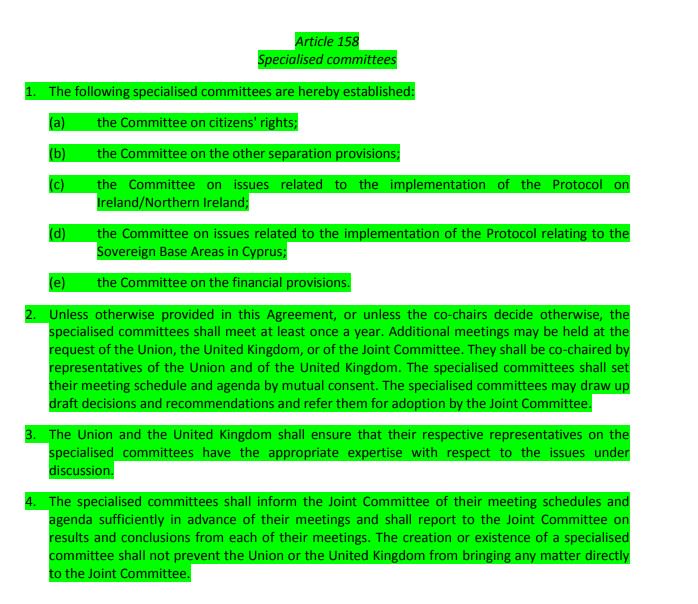In the document, you’ll that what it does
assets.publishing.service.gov.uk/government/upl…
Anyway, with proviso that I am NOT a lawyer (hopefully actual lawyers can weigh in)
1. p3 paragraph 2 reminds us that the EU treaties cease on Exit Day ie including all the trade agreements the EU has with third countries
2. p4 paragraph 9: EU law enshrined by WA trumps UK law if they differ
p.18 paragraph 50: we can negotiate new trade agreements during transition but they can’t take effect until transition ends. So there might be gaps (see previous point)
p.19 “Financial Settlement” doesn’t include an exact amount the UK
p.75 paragraph 76: explicitly spells out what we already know ie the Political Declaration is an aspirational
p.25 paragraph 77 doubles down on the above, in case it wasn’t already clear enough.
p32 paragraph 8 & 9: you guessed it... we cannot leave the backstop
p34 paragraph 18: if the UK & EU haven’t managed to agree a new deal on fisheries by 1 July 2020, tariffs will become chargeable because fish are excluded from the common tariff agreement on all other goods.
I did, however, try to get everything correct in good faith😇
Please weigh in, especially if you *are* a lawyer. I make no claim to be right.




